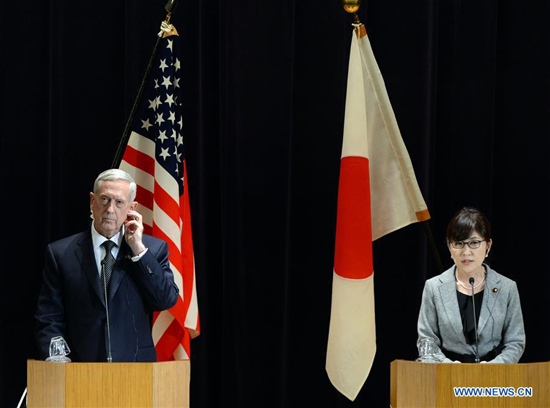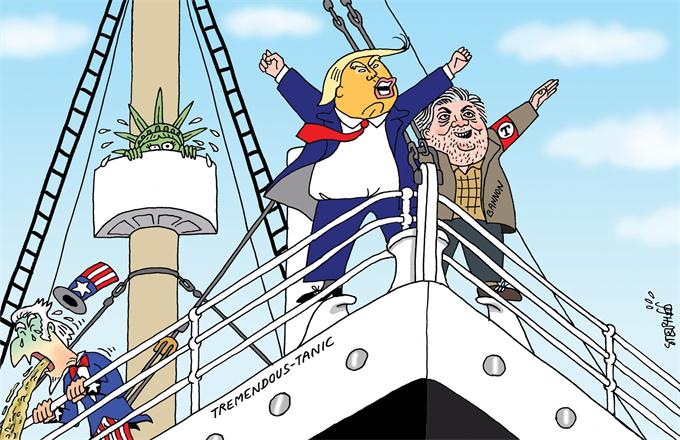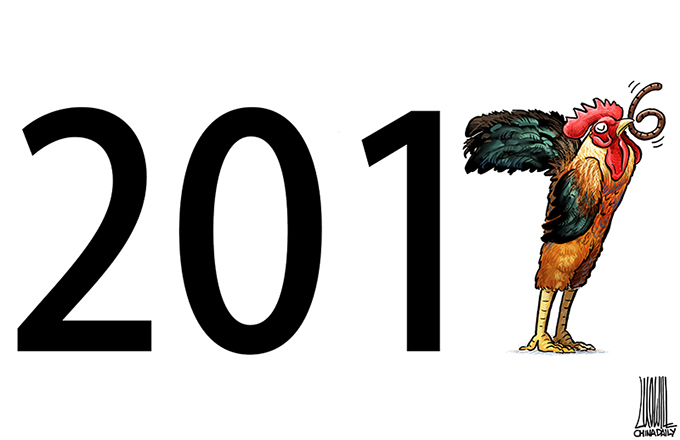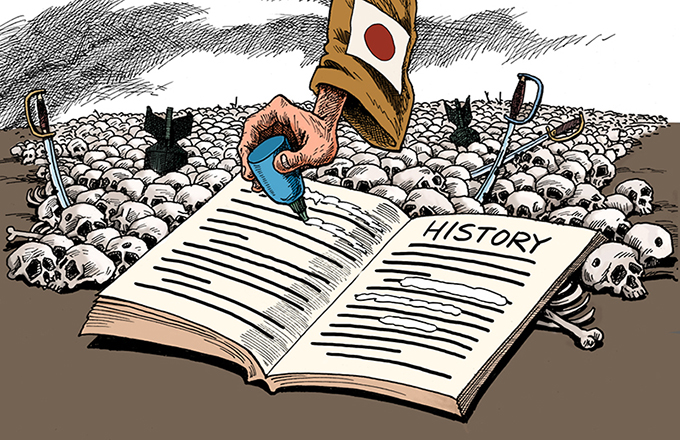Mattis's Asia visit adds uncertainty to regional stability
|
 |
|
US Defense Secretary James Mattis (L) attends a press conference with his Japanese counterpart Tomomi Inada in Tokyo, Japan, Feb. 4, 2017. [Xinhua/Ma Ping] |
US Defense Secretary James Mattis' reiteration of America's defense commitments to its allies in Asia during his maiden visit to the region over the weekend has added uncertainty to regional stability.
By reaffirming US engagement, the new Pentagon chief's visit to South Korea and Japan seems to have raised more uncertainties in the Asia-Pacific instead of bringing stability as he claimed.
STABILIZER OR STIMULATOR?
During his three-day visit ending Saturday, Mattis offered most key security reassurances that Tokyo and Seoul, the two key US allies in Asia, have long been eager to hear after remarks made by US President Donald Trump in his campaign trail.
In a series of meetings with senior Japanese officials, Mattis reiterated his country's mutual defense commitment to Japan, saying that their alliance remained a "cornerstone" of regional stability.
Mattis's praise of Japan as "a model" of burden-sharing downplayed the accusation of "free-rider" on security that Trump made in his presidential campaign.
The hawkish former four-star general also claimed that the Diaoyu Islands, an inherent part of the Chinese territory, fell under Article 5 of the US-Japan security treaty, a statement sparking criticism from China.
Chinese Foreign Ministry spokesman Lu Kang said later that the so-called US-Japan treaty was a product of the Cold War, and should not impair China's territorial sovereignty and legitimate rights.
Talking to his South Korean counterpart earlier last week, Mattis reaffirmed the Trump administration's commitment to deploy the Terminal High Altitude Area Defense (THAAD), a high-end US missile defense system nominally aiming at countering missile attack from the Democratic People's Republic of Korea.
Despite Trump's vowing days ago to take fresh look at the country's foreign policy, Mattis's remarks have been interpreted as an extension of the Obama administration's pivot-to-Asia strategy.
The main purpose of Mattis's visit is to reassure its allies about the UScontinuous engagement in the region, said Diao Daming, a researcher on American studies at the Chinese Academy of Social Sciences.
"More US military presence in the region could be expected," added Diao.

























